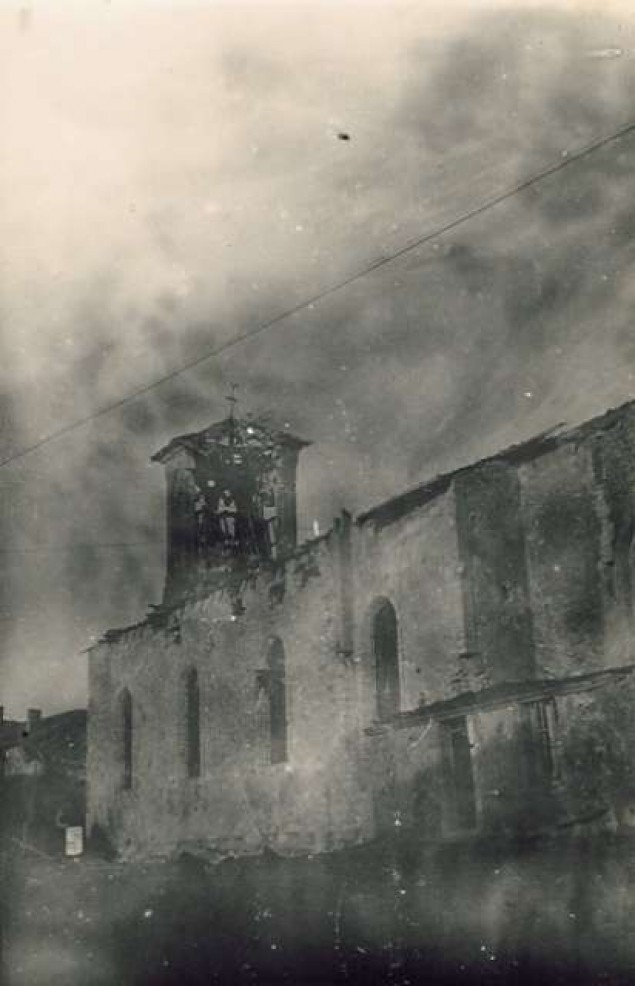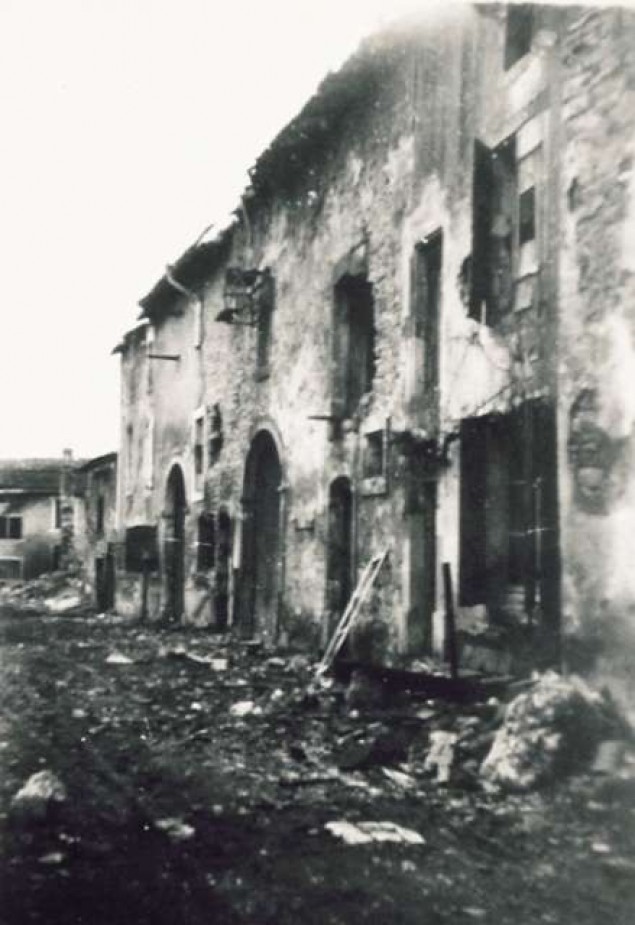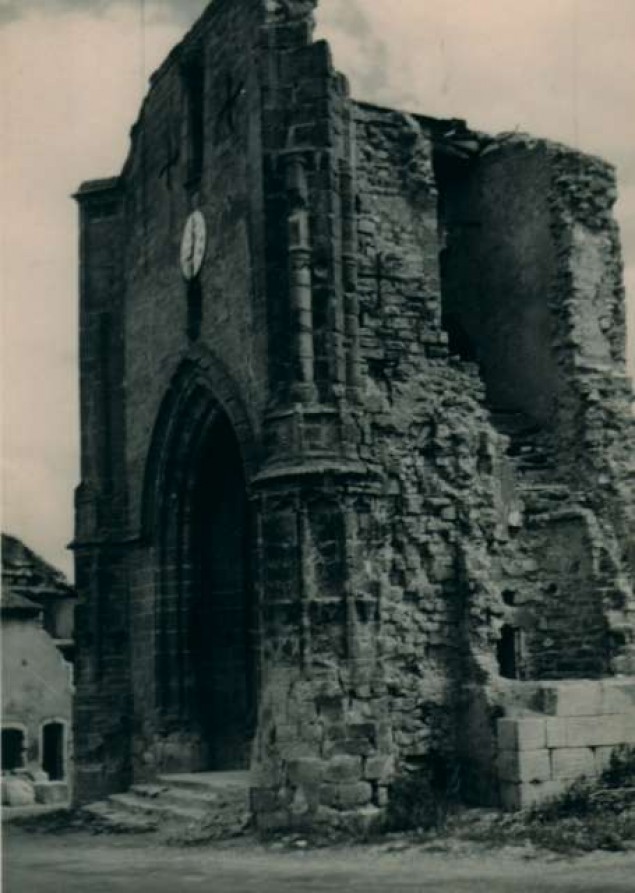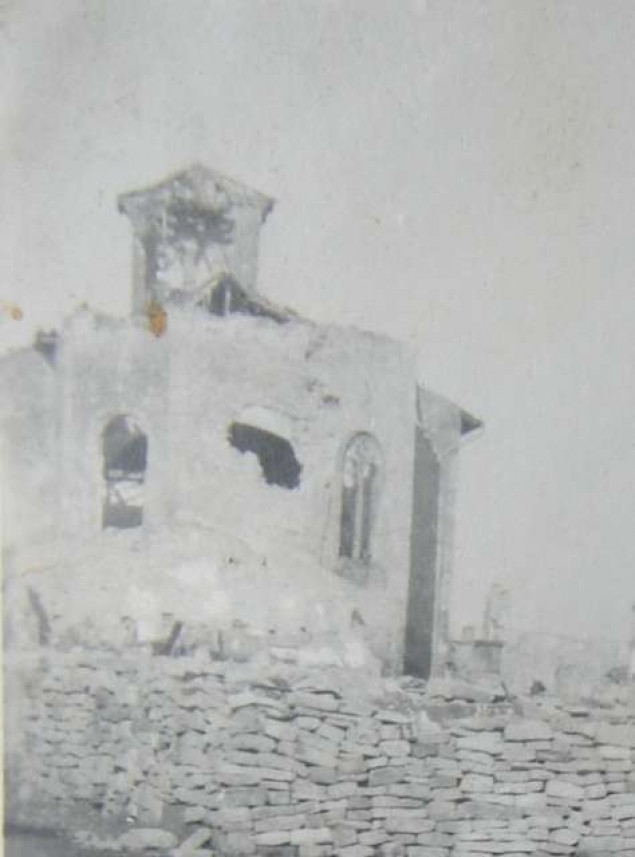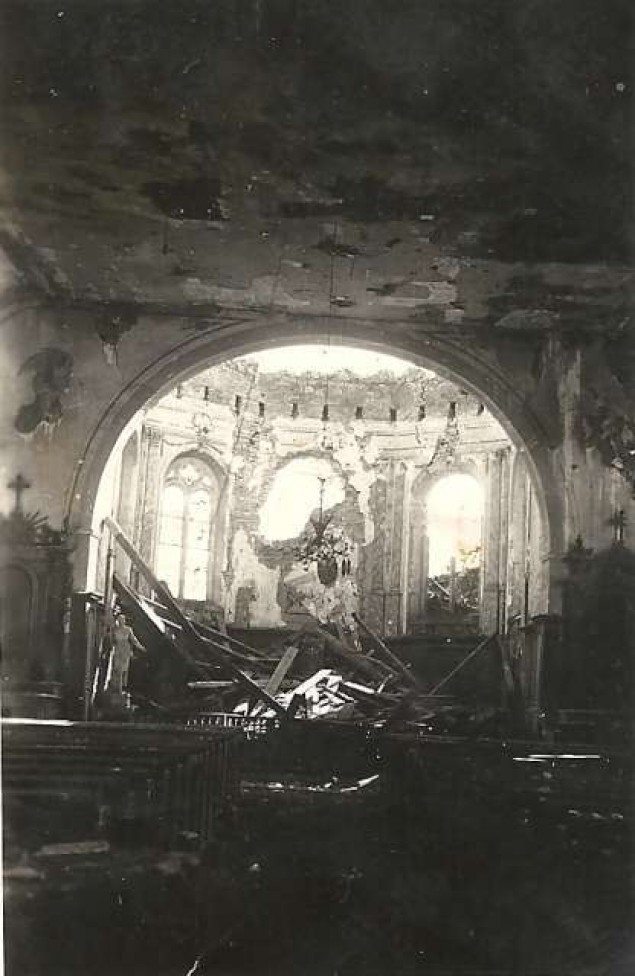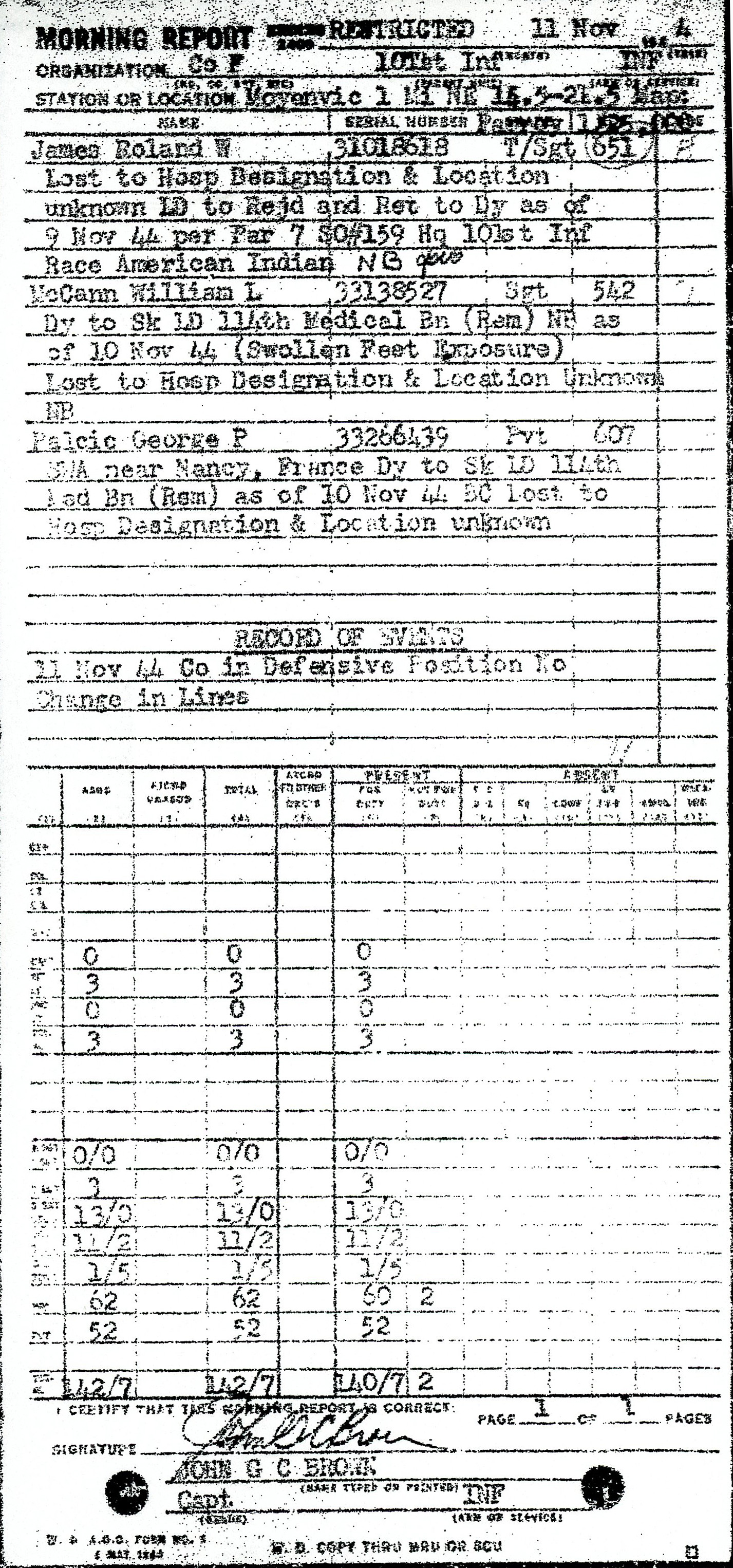Hill 310
Our platoon leader was laying just to my left and suddenly I heard him grunt. He was nicknamed "The Goop" because he was kind of pear shaped and didn't look or act like a soldier at all. For example when he inspected rifles he was known to say things like "My goodness soldier, you must get that dirt out of the nooks and crannies." I said something like "are you hit?" He replied "Yes, they got me right in the rump."
He was 20 or 21 years old just out of Officers training and would not have said "ass" if we paid him to.
About this time I figured my number was up. I found that I just accepted the fact. My thoughts were about how sad Shirley and my mother would be when they got the news.
I got brave enough to turn my head to look around and saw one of the older guys in our squad crawling up toward the enemy position. He was in his late 20s or early 30s and another good ol' southern boy.
One night in South Carolina during training he was on a bus headed back from town.
So was an unlucky guy in a seat toward the front of the bus. He fell asleep with his guitar on the seat beside him and my friend picked up the guitar as he got off the bus. From then on we had a hard time getting to sleep. Every night, it seemed, they would be howling out "I don't want your greenback dollars" and other favorite hillbilly songs until the wee hours of the morning.
He reached my position and said "We have to get to the machine gun nest or they'll hit us with the shells." I could see the wisdom of this and finally fired off a couple of rounds and started to crawl, too. As we got closer to the enemy position, the burp gun either ran out of ammo or could see that we were going to take him. The gunner put up has hands and started yelling "comrade".
Our Assistant Squad Leader crawled up in back of me and told me to get in the hole with the German soldier. I did so willingly, hoping to escape the shell fire. Our adversary was probably 30-40 years old, scared to death, and jabbering a mile a minute.
The Assistant Squad Leader said: "Get his burp gun out of the way, pat him down for a pistol or knife." I followed his instructions finding nothing. The Assistant Squad Leader was very thorough and told me to make him take off his boots. The trench we were standing in had about an inch or two of semi liquid mud in it and I hesitated to do this but the Assistant Squad Leader insisted. The German soldier was very reluctant but followed through and wound up with his nice heavy wool socks standing in the mud. We found no knife or pistol in his boots.
I went into the dugout and found a relatively large place with a little stove, table with half-eaten breakfast for 3-4 people- crude bunks, a position they had occupied for some time. Apparently the gunner was on watch when we showed up and stayed while the others took off out the back door.
The shelling let up and someone was detailed to take our prisoner back to the rear while we took off to ascend Hill 310. Other units were now a little ahead of us and while we encountered some resistance we found mostly young kids and old men in the German positions. They seemed to recognize that we weren't going to stop and gave up pretty easily.
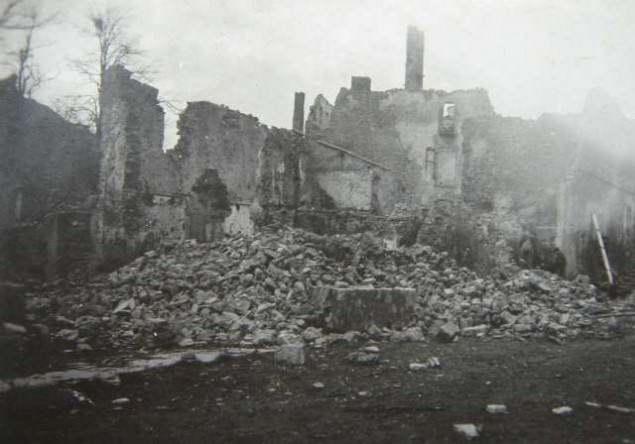


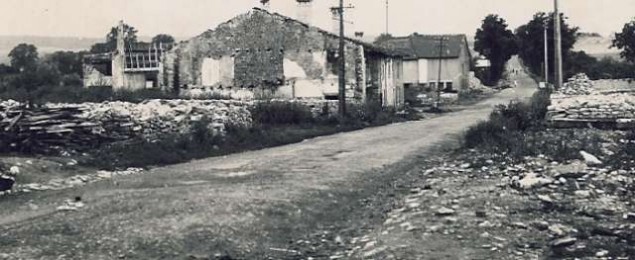
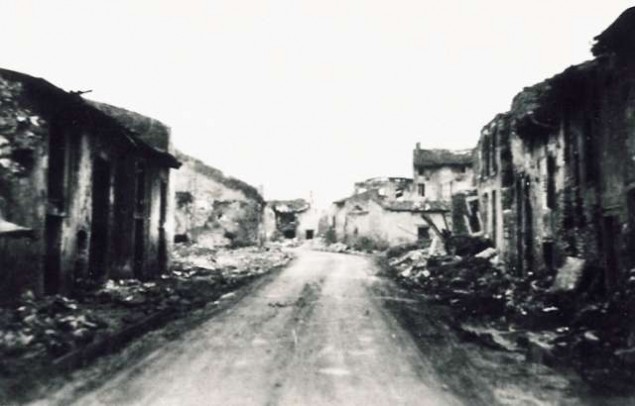
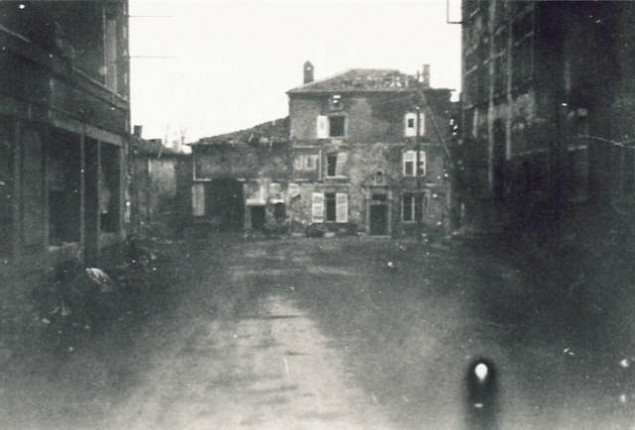
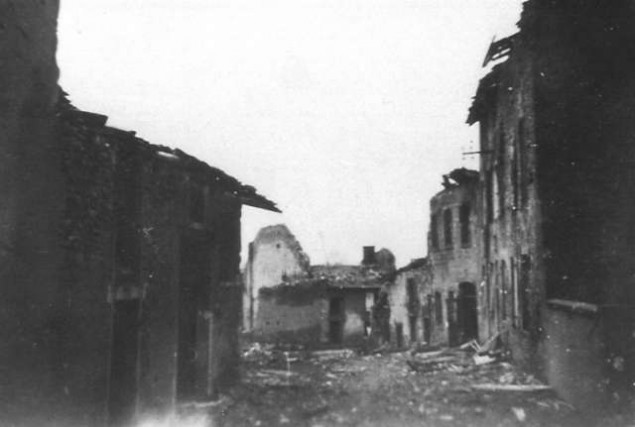
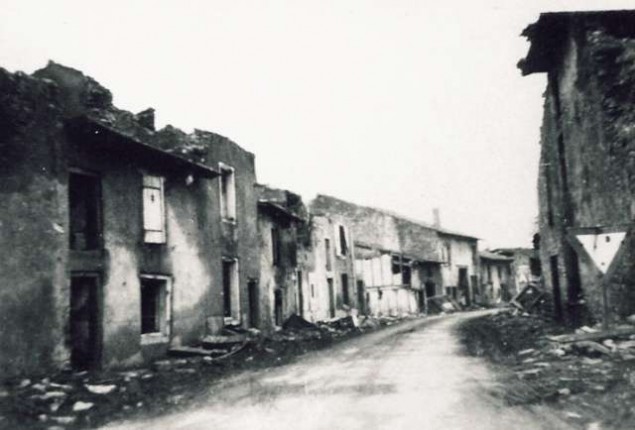
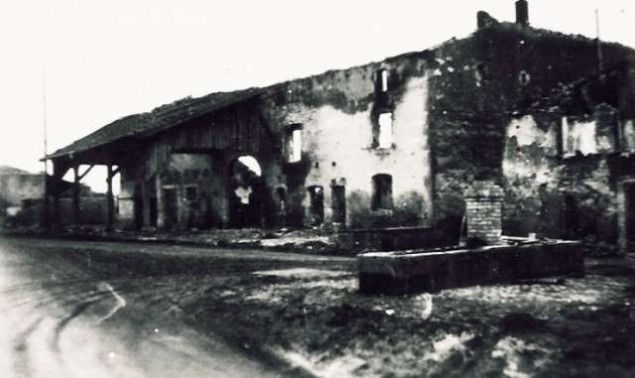
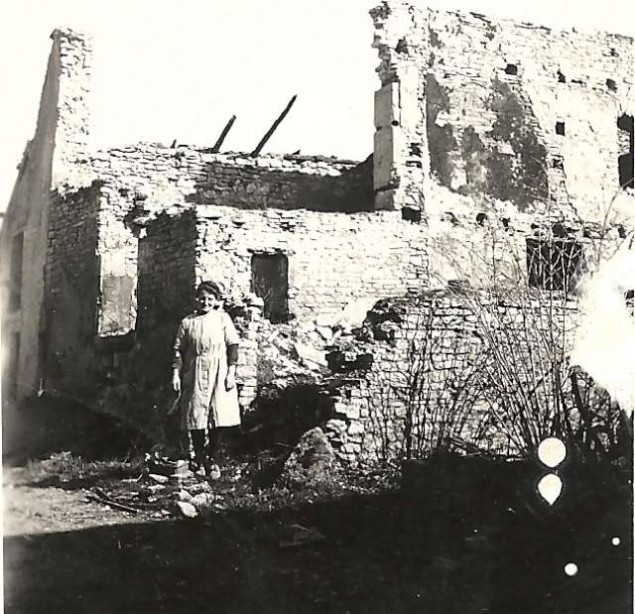
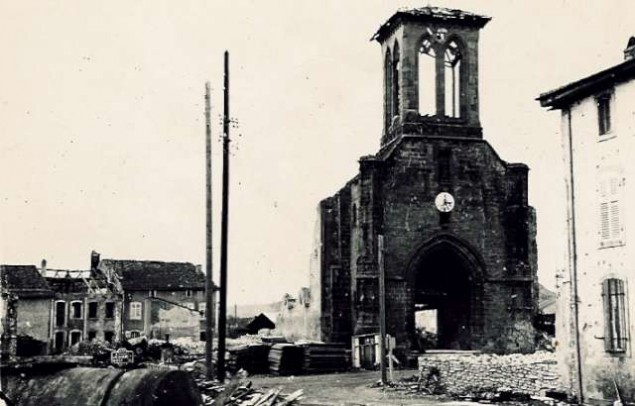
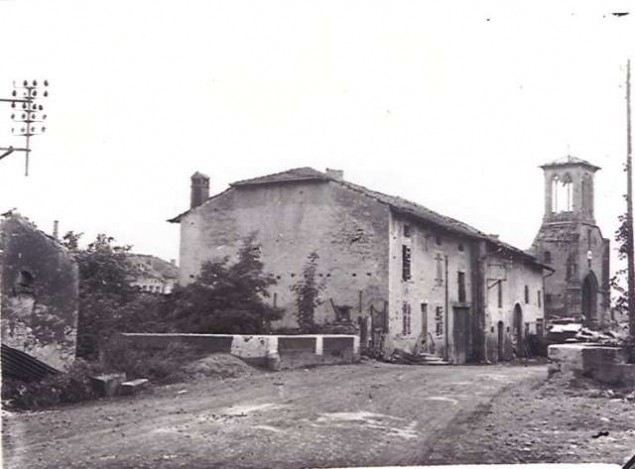
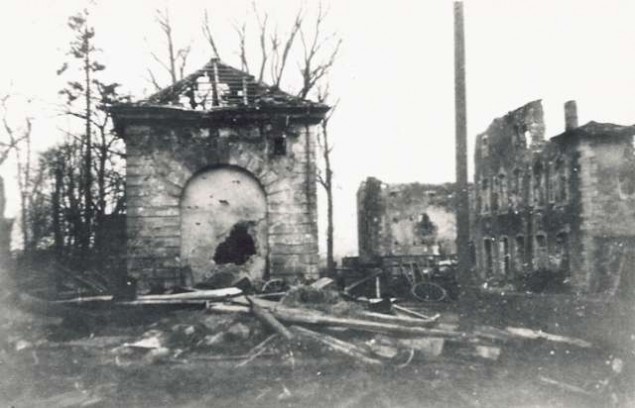
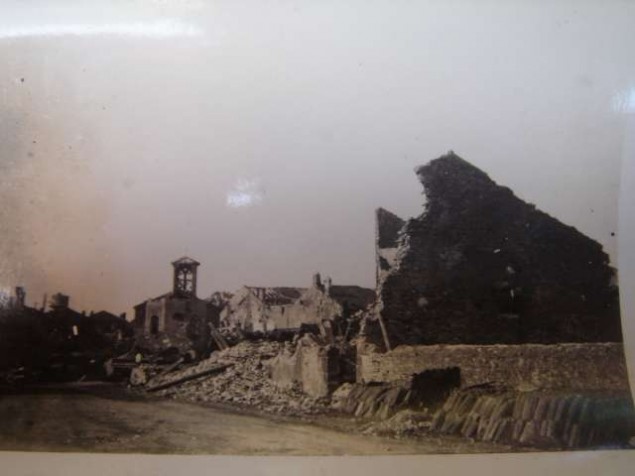
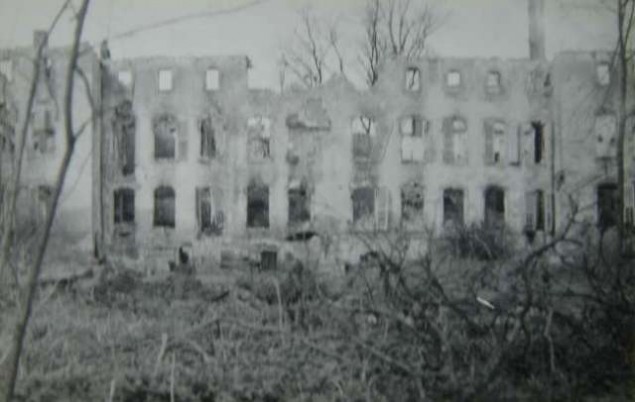
Pictures of Moyenvic after the battle
Late in the day we finally arrived at the top of Hill 310 and got orders to dig in. This is in November; rainy, cold and pretty bleak prospects for the night. Gambel and I looked around for a good rock-less place to start digging and found a German observation post. The observers could see over the route that we had just come up. It was frightening to see how they had full observation of us and could call in shellfire.
Gambel and I had a little discussion and decided that, as usual, after we dug in someone would tell us to pack up and be ready to move out. We also felt sure if we stayed it would probably be just overnight.
We elected to sit in the observation post and save all the digging. The hole had a couple of inches of water in it but if we sat right we could keep our feet out of the water most of the time and maybe get a little sleep sitting up. The place was not large enough to lie down. In fact we took off our equipment and left it on the rim of the hole so that we had a little more room inside.
We paid dearly for being too lazy to dig.
What we hadn't thought of was that the enemy knew exactly where this observation post was and when they got settled in their new position they got out their map, zeroed in on our position and started pumping mortars in fast and furiously. The 'powers that be' did not decide to move on, but kept us there on that hill for a second night and day.
Two long, miserable nights and similar days. Wet feet, lots of shells, some of our equipment outside riddled by shrapnel and a lesson learned by two sorry soldiers. We learned that the F Company casualties were very heavy. Our Co-Commander, all five other officers, and numerous enlisted had been killed or captured during this first day of attack. The company was now in the charge of the first Sgt. and a platoon Sgt. I can remember these couple of days quite clearly because they were an experience that has been paramount in my life.
I was sure that I was about to die and didn't. I have not feared death since and have realized how great it is to be alive, regardless of circumstances.
This day also demonstrated to me that even the worst of things, like a two cold days in a foxhole, could turn out to be beneficial.
Company F morning reports November 8-12 1944. Morning reports recorded casualties, fatalities (KIA= Killed in action) and sometimes brief records of events.
From : Connecticut Veterans Commemorative Booklet Vol IX No 19 January 10, 1946 Carlton B. Clyma, Editor
Green, Charles K., Pfc., Co. F.1 101st lnf., 26th Div., Milford
"The first attack I was ever in was the worst. At Moinvec (SIC), France, we took off before daylight to attack the German positions and got pinned down for two hours by the enemy artillery and infantry fire. We lost half of the platoon that night and in the daylight fighting at Hill 310, we lost half of the company. I don't know how I got out without being hit but I guess that it was just one of those things as a lot of men around me were wounded. I didn't get out in the best of shape, though, as trench foot caught up with me and I was sent back to the hospital for a month and a half. I got back in time to go to the Bulge and got my feet frozen again there. I was again sent to the hospital and got back to the company right after V-E Day. After the war I did occupation work and also did some border patrol duty with the British troops in the mountains in Austria."

